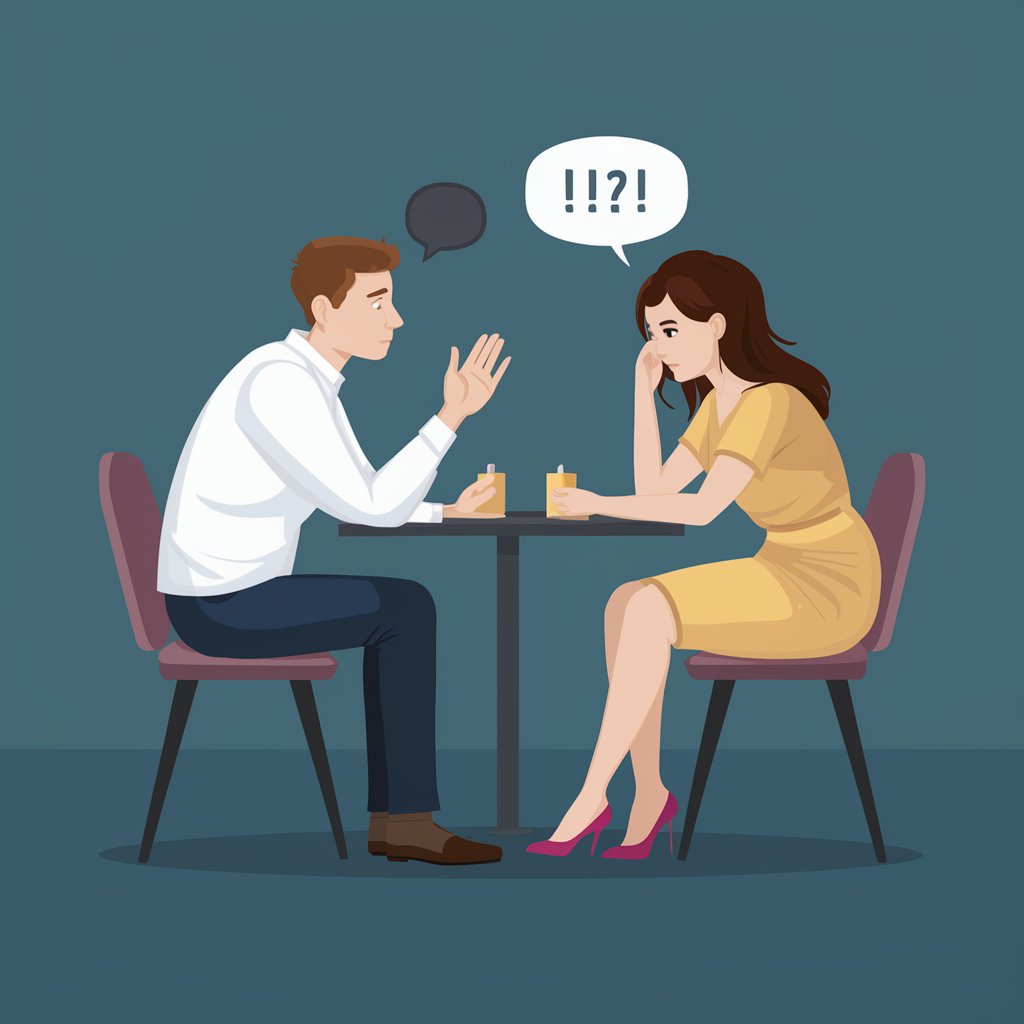Coping with Relationship Anxiety
Coping with Relationship Anxiety: A Comprehensive Guide
Read Disclaimer
Learn effective strategies for coping with relationship anxiety. Discover causes, symptoms, and practical tips to foster a healthy, fulfilling relationship.
Introduction
Relationships can be a beautiful and fulfilling part of life, but they can also bring about significant anxiety. This anxiety can stem from a variety of sources, including past experiences, fear of rejection, or insecurity about the future of the relationship. Understanding and managing relationship anxiety is crucial for maintaining a healthy and happy partnership. This comprehensive guide will explore the causes, symptoms, and strategies for coping with relationship anxiety.
Understanding Relationship Anxiety
What is Relationship Anxiety?
Relationship anxiety refers to feelings of worry, fear, and apprehension specifically related to romantic relationships. This anxiety can manifest in various ways, including constant worry about your partner’s feelings, fear of the relationship ending, or self-doubt about your worthiness as a partner.

Why Does Relationship Anxiety Pop Up? A Look at Common Causes
Relationship anxiety can be a real drag on a happy couple’s life. Here’s a deeper dive into the reasons you mentioned that can contribute to these anxious feelings:
- Past Traumas: If you’ve been hurt in past relationships, it’s understandable to be wary of getting hurt again. Experiences like being cheated on, lied to, or abandoned can make it difficult to trust new partners and open yourself up emotionally. These past experiences can cast a long shadow, leading you to constantly question your partner’s feelings or intentions.
- Insecurity and Low Self-Esteem: Doubting your own worth or attractiveness can make you feel anxious about whether your partner truly loves you. You might compare yourself to others and constantly worry that you’re not good enough. This insecurity can lead to jealousy, possessiveness, and difficulty expressing your needs effectively.
- Fear of Vulnerability: Opening up emotionally and being vulnerable is a core part of intimacy. However, for some people, this vulnerability can be terrifying. The fear of rejection or being hurt can make it hard to let someone in and create a deep connection.
- Attachment Styles: Our attachment styles, formed in early childhood interactions with caregivers, can significantly impact our adult relationships. Anxious attachment, for example, can make you crave constant reassurance and closeness. You might worry excessively about your partner’s feelings or become easily threatened by any perceived distance.
Here are some additional factors that can contribute to relationship anxiety:
- Communication Issues: Poor communication can lead to misunderstandings and resentment, which can fuel anxiety.
- Unrealistic Expectations: Having unrealistic expectations about relationships can set you up for disappointment and anxiety.
- Life Stressors: External stressors like work problems or financial difficulties can exacerbate relationship anxiety.
If you’re experiencing relationship anxiety, it’s important to understand the root cause. Talking to a therapist or counselor can help you develop healthy coping mechanisms and build a more secure relationship.
Warning Signs: Symptoms of Relationship Anxiety
Relationship anxiety can manifest in various ways, impacting your thoughts, feelings, and behaviors. Here’s a closer look at the symptoms you mentioned:

- Constant Need for Reassurance: You might constantly ask your partner for validation of their love and commitment. This could involve frequent questions like “Do you love me?” or seeking out repeated compliments and signs of affection. However, no matter what reassurance you receive, the anxiety may only be temporarily relieved.
- Overthinking and Overanalyzing: You might find yourself fixated on minor details or misinterpreting your partner’s words or actions. Every text message delay or change in plans could become a source of worry and suspicion. This constant overthinking can drain your energy and create unnecessary conflict in the relationship.
- Jealousy and Suspicion: Unfounded fears of infidelity or your partner being attracted to someone else can be a hallmark of relationship anxiety. You might find yourself snooping on their phone or social media, constantly questioning their whereabouts, or feeling threatened by any interaction they have with others.
- Avoidance Behaviors: The fear of rejection or getting hurt can lead you to withdraw from your partner emotionally or physically. You might avoid intimacy, cancel plans, or shut down communication to protect yourself from potential pain. However, this avoidance can create distance and hinder the growth of the relationship.
Additional Symptoms:
- Low mood and depression
- Anxiety attacks
- Difficulties concentrating
- Changes in sleep or appetite
- Clingy or possessive behavior
- Difficulty trusting your partner
- Controlling behaviors
Taking Charge: Strategies for Coping with Relationship Anxiety
Relationship anxiety can be overwhelming, but there are steps you can take to manage it and build a stronger, healthier relationship. Here’s a breakdown of the strategies you mentioned with additional insights:

- Self-Awareness and Reflection: Know Yourself, Know Your Triggers
- Identify Triggers: Pay attention to situations, conversations, or behaviors that spark your anxiety. Are you anxious when your partner works late? Does social media use trigger jealousy? Recognizing your triggers is the first step to addressing them effectively.
- Reflect on Past Experiences: Consider how past relationship experiences, like breakups, betrayals, or a history of anxious attachment, might be influencing your current feelings. Understanding these connections can help you work through them.
- Open Communication: Talk it Out, But Do It Right
- Express Your Feelings: Bottling up emotions can worsen anxiety. Talk to your partner openly and honestly about your anxieties. Use “I” statements to communicate your feelings without blaming them. For example, “I feel anxious when you don’t text me back right away because it reminds me of a time…”
- Ask for Reassurance (with a Balance): It’s okay to seek reassurance sometimes, but don’t rely on it solely. Develop healthy coping mechanisms alongside open communication with your partner.
- Building Trust: The Foundation of a Secure Relationship
- Establish Trust: Trust is essential for a healthy relationship. Be honest, consistent, and reliable in your words and actions. Keep promises and avoid secretive behaviors.
- Trust-Building Activities: Engage in activities that strengthen trust, like shared hobbies, working on a joint project, or setting common goals. Open communication and emotional vulnerability can also build trust over time.
- Self-Care and Personal Growth: Invest in Yourself
- Focus on Self-Care: Prioritize activities that make you feel good about yourself. This could include exercise, spending time with loved ones, pursuing hobbies, or practicing relaxation techniques. A strong sense of self-worth can contribute to feeling more secure in the relationship.
- Therapy and Counseling: Consider seeking professional help from a therapist or counselor specializing in anxiety or relationship issues. They can provide tools and strategies to manage your anxiety and improve communication and emotional regulation.
- Developing Healthy Boundaries: Create Space for You and Your Partner
- Set Boundaries: Discuss and establish healthy boundaries within your relationship. This could involve communication boundaries (like not texting constantly), privacy boundaries (like respecting personal space), or social media boundaries (like being mindful of online interactions). Clear boundaries can help prevent misunderstandings and reduce anxiety.
- Respect Each Other’s Space: Everyone needs some independence within a relationship. Encourage your partner to pursue their own interests and hobbies, and do the same for yourself. This can create a healthy balance and prevent feelings of clinginess or possessiveness.
- Mindfulness and Stress Reduction: Techniques for Calming the Mind
- Practice Mindfulness: Mindfulness techniques like meditation and deep breathing can help you manage anxiety symptoms in the moment. Mindfulness practices can help you focus on the present and detach from anxious thoughts.
- Stress Reduction Activities: Engage in activities that help you de-stress and relax. This could include yoga, journaling, spending time in nature, listening to calming music, or practicing gratitude exercises. Reducing overall stress can have a positive impact on relationship anxiety.
Remember, coping with relationship anxiety is a journey, not a destination. Be patient with yourself and celebrate your progress. If you find these strategies challenging to implement on your own, don’t hesitate to seek professional help. With consistent effort and the right support system, you can build a secure and fulfilling relationship.
Keeping the Spark Alive: Strategies for Maintaining a Healthy Relationship
Just like a garden, healthy relationships need regular care and attention to thrive. Here’s a closer look at the ways you can nurture your connection:
- Regular Check-Ins: Open Communication is Key
- Schedule Regular Conversations: Set aside dedicated time to talk openly and honestly about your relationship. This doesn’t have to be a formal, stressful conversation. It could be over dinner or during a relaxing activity. The key is to create space for regular, honest communication.
- Be Open to Feedback: Nobody likes criticism, but constructive feedback from your partner can be a valuable tool for growth. Listen openly to their concerns and see them as an opportunity to improve the relationship together.
- Focus on the Positives: Appreciation Makes a Difference
- Celebrate Successes: Take time to acknowledge and celebrate milestones in your relationship, big or small. Did you overcome a challenge together? Did you reach a shared goal? Celebrating these successes reinforces the positive aspects of your bond.
- Gratitude Practice: Make a habit of expressing gratitude to your partner for the things they do and the qualities you appreciate. A simple “thank you” or a specific compliment can go a long way in strengthening your connection.
- Relationship Education: Always Room to Learn
- Read Books and Articles: There’s always more to learn about healthy relationships. Explore books, articles, or online resources that provide insights and tips for communication, conflict resolution, and keeping the spark alive.
- Attend Workshops or Counseling Together: Consider attending couples workshops or seeking professional counseling as a preventative measure, not just when problems arise. These sessions can equip you with tools for better communication, conflict resolution, and building a stronger bond.
Additional Tips for Maintaining a Healthy Relationship:
- Quality Time: Make time for regular date nights or activities you both enjoy. This dedicated time to connect and have fun strengthens the relationship.
- Physical Intimacy: Maintain a healthy level of physical intimacy, whether it’s cuddling, holding hands, or sexual intimacy. Physical touch is an important part of emotional connection.
- Maintain Individuality: It’s important to nurture your own interests and hobbies outside of the relationship. Maintaining a sense of self can contribute to a healthier dynamic within the relationship.
- Practice Forgiveness: Nobody is perfect. Learn to forgive each other’s mistakes and move forward. Holding onto grudges can damage the relationship.
- Be Willing to Compromise: Relationships are a two-way street. Be willing to compromise and meet your partner halfway to find common ground.
Remember, a healthy relationship is an ongoing process. By incorporating these strategies and nurturing your connection, you can build a strong and lasting bond with your partner.
Conclusion
Relationship anxiety is a common yet challenging issue that many people face. It can stem from various sources, including past traumas, insecurities, and fear of vulnerability, and can manifest through symptoms such as constant need for reassurance, overthinking, and jealousy. Understanding and addressing these root causes is crucial for managing anxiety and fostering a healthier relationship.
Effective coping strategies involve a multi-faceted approach. Self-awareness and reflection allow individuals to identify their triggers and understand how past experiences influence their current feelings. Open communication with a partner helps in expressing anxieties constructively and seeking mutual reassurance. Building trust through honesty and reliability, while engaging in trust-building activities, strengthens the relationship foundation.
Self-care and personal growth are vital components in managing anxiety. Focusing on self-care, seeking professional help, and developing healthy boundaries can significantly reduce anxiety levels. Mindfulness practices and stress reduction activities also play a crucial role in managing symptoms and promoting overall well-being.
Maintaining a healthy relationship requires regular check-ins, focusing on the positives, and continuing education on relationship dynamics. By celebrating successes, expressing gratitude, and engaging in relationship workshops or counseling, couples can strengthen their bond and navigate challenges more effectively.
Ultimately, coping with relationship anxiety is an ongoing process that requires patience, effort, and a commitment to personal growth and mutual support. With the right tools and strategies, individuals can overcome anxiety and cultivate a fulfilling and harmonious relationship.
FAQs with Answers
- What is relationship anxiety?
Relationship anxiety refers to feelings of worry, fear, and apprehension specifically related to romantic relationships, often stemming from past experiences, insecurities, or attachment styles.
- What are common symptoms of relationship anxiety?
Symptoms include constant need for reassurance, overthinking, jealousy, suspicion, and avoidance behaviors.
- How can I identify my relationship anxiety triggers?
Reflect on past experiences and patterns in your behavior, and pay attention to situations that consistently cause you stress or worry.
- How important is communication in managing relationship anxiety?
Open communication is crucial. It helps you express your feelings and concerns constructively and fosters mutual understanding and reassurance.
- Can therapy help with relationship anxiety?
Yes, therapy can provide strategies to manage anxiety and improve relationship dynamics, offering professional guidance and support.
- What role does self-care play in managing relationship anxiety?
Self-care activities boost self-esteem, reduce stress, and improve overall well-being, helping to mitigate anxiety.
- How can mindfulness help with relationship anxiety?
Mindfulness practices like meditation and deep breathing can help manage anxiety symptoms and promote a sense of calm and presence.
- What are some trust-building activities for couples?
Engaging in joint projects, setting and achieving shared goals, and consistently being honest and reliable are effective trust-building activities.
- How do attachment styles affect relationship anxiety?
Anxious attachment styles, often developed in childhood, can result in clinginess and fear of rejection, contributing to relationship anxiety.
- Is it normal to experience some anxiety in relationships?
Yes, it is normal to experience some anxiety in relationships. The key is to manage it effectively so it doesn’t undermine the relationship.
- How can setting boundaries help with relationship anxiety?
Setting boundaries helps prevent misunderstandings, ensures mutual respect, and reduces anxiety by establishing clear expectations.
- What should I do if my partner doesn’t understand my anxiety?
Try to explain your feelings calmly and clearly, and consider seeking couples counseling to improve mutual understanding and communication.
- How often should couples have check-ins about their relationship?
Regular check-ins, such as weekly or monthly, can help address concerns before they escalate and keep the relationship healthy.
- Can focusing on the positives really help reduce anxiety?
Yes, focusing on the positives can shift your mindset, reduce stress, and enhance your appreciation for your partner and relationship.
- What resources can help with relationship anxiety?
Books, articles, workshops, and professional counseling are valuable resources for learning more about managing relationship anxiety.

Your article helped me a lot, is there any more related content? Thanks!
Your point of view caught my eye and was very interesting. Thanks. I have a question for you.
Your point of view caught my eye and was very interesting. Thanks. I have a question for you.
Your article helped me a lot, is there any more related content? Thanks!
Your article helped me a lot, is there any more related content? Thanks!
Thank you for your sharing. I am worried that I lack creative ideas. It is your article that makes me full of hope. Thank you. But, I have a question, can you help me?
I don’t think the title of your article matches the content lol. Just kidding, mainly because I had some doubts after reading the article.
I don’t think the title of your article matches the content lol. Just kidding, mainly because I had some doubts after reading the article.
I don’t think the title of your article matches the content lol. Just kidding, mainly because I had some doubts after reading the article.
I don’t think the title of your article matches the content lol. Just kidding, mainly because I had some doubts after reading the article.
Your point of view caught my eye and was very interesting. Thanks. I have a question for you.
Thanks for sharing. I read many of your blog posts, cool, your blog is very good.
Can you be more specific about the content of your article? After reading it, I still have some doubts. Hope you can help me.
Thank you for your sharing. I am worried that I lack creative ideas. It is your article that makes me full of hope. Thank you. But, I have a question, can you help me? https://accounts.binance.com/hu/register?ref=FIHEGIZ8
Can you be more specific about the content of your article? After reading it, I still have some doubts. Hope you can help me.
Thanks for sharing. I read many of your blog posts, cool, your blog is very good.
Your point of view caught my eye and was very interesting. Thanks. I have a question for you.
Thank you for your sharing. I am worried that I lack creative ideas. It is your article that makes me full of hope. Thank you. But, I have a question, can you help me?
Thanks for sharing. I read many of your blog posts, cool, your blog is very good.
Thank you for your sharing. I am worried that I lack creative ideas. It is your article that makes me full of hope. Thank you. But, I have a question, can you help me?
I don’t think the title of your article matches the content lol. Just kidding, mainly because I had some doubts after reading the article.
Thank you for your sharing. I am worried that I lack creative ideas. It is your article that makes me full of hope. Thank you. But, I have a question, can you help me? binance code
Thanks for sharing. I read many of your blog posts, cool, your blog is very good.
Thanks for sharing. I read many of your blog posts, cool, your blog is very good.
I don’t think the title of your article matches the content lol. Just kidding, mainly because I had some doubts after reading the article.
Thank you for your sharing. I am worried that I lack creative ideas. It is your article that makes me full of hope. Thank you. But, I have a question, can you help me?
Thanks for sharing. I read many of your blog posts, cool, your blog is very good.
Your point of view caught my eye and was very interesting. Thanks. I have a question for you.
Your point of view caught my eye and was very interesting. Thanks. I have a question for you.
Your article helped me a lot, is there any more related content? Thanks!
Can you be more specific about the content of your article? After reading it, I still have some doubts. Hope you can help me.
Thanks for sharing. I read many of your blog posts, cool, your blog is very good.
Thanks for sharing. I read many of your blog posts, cool, your blog is very good.
paypal casino canada
References:
https://www.lms.pidernegi.org/employer/paypal-casinos-2025-best-paypal-slot-sites-in-the-uk
online casino mit paypal einzahlung
References:
https://www.paknaukri.pk/companies/best-payid-casinos-in-australia-15-sites-that-accept-payid/
online poker real money paypal
References:
chitsime.org
online betting with paypal winnersbet
References:
https://qrlinkgenerator.com/gracevillalpan
References:
Test e anavar cycle before and after
References:
kaas-stern.blogbright.net
References:
Roulette online
References:
md.inno3.fr
References:
Anavar before and after youtube
References:
cancercomb4.bravejournal.net
References:
Casino online subtitrat
References:
lassiter-beebe-3.blogbright.net
References:
Casino m8trix
References:
matkafasi.com
References:
Casino barriere lille
References:
http://premiumdesignsinc.com
best testosterone steroid for bulking
References:
https://posteezy.com/can-you-buy-clenbuterol-legally-comprehensive-guide
gnc muscle building supplements
References:
https://termansen-bennetsen.blogbright.net/steroids-and-nutrition
References:
Anavar results before after female
References:
king-wifi.win
purchasing steroids online
References:
https://justpin.date/
References:
Anavar before and after 8 weeks
References:
linkvault.win
References:
Test and anavar before and after
References:
jobs.emiogp.com
References:
Anavar before and after female pictures
References:
https://bom.so
cheap anabolic steroids
References:
https://rentry.co/
References:
Anavar gains before and after
References:
pads.jeito.nl
References:
Anavar before and after 1 month
References:
https://doodleordie.com
anabolic steroids are a type of quizlet
References:
https://yogaasanas.science/wiki/Winstrol_Stanozolol_inyectable_pastillas_Comprar_al_Mejor_Precio_en_Espaa
effects of prolonged steroid use on the
human body
References:
https://saveyoursite.date/story.php?title=steroid-use-is-widespread-and-its-increasingly-dangerous
References:
Southpoint casino las vegas
References:
https://www.adpost4u.com/user/profile/4255748
References:
Casino machines
References:
nhadat24.org
References:
Minneapolis casino
References:
lindgreen-kappel.technetbloggers.de
References:
Playboy casino cancun
References:
https://graph.org/
References:
Live roulette online
References:
ramirez-law-2.hubstack.net
References:
Casino canada
References:
hulkshare.com
References:
Online betting with paypal winnersbet
References:
adsintro.com
References:
Skagit casino
References:
https://bookmarking.win/story.php?title=conto-deposito-migliore-di-january-2026-conti-deposito-rendimenti-fino-al-4-00
References:
Best online casino bonuses in the uk
References:
menwiki.men
References:
Aria casino las vegas
References:
mozillabd.science
References:
Slot machine games online
References:
https://cameradb.review/wiki/Slots_Live_Dealers_Sports_Bets_VIP_Rewards
References:
Online betting sites
References:
web.ggather.com
References:
Isleta casino albuquerque
References:
bookmarkingworld.review
top rated legal steroids
References:
pattern-wiki.win
%random_anchor_text%
References:
https://brewwiki.win
%random_anchor_text%
References:
https://zenwriting.net
bodybuilding steroid cycle
References:
justpin.date
anavar steroid side effects
References:
https://graph.org
%random_anchor_text%
References:
https://justbookmark.win/story.php?title=quel-est-le-meilleur-complement-alimentaire-pour-maigrir-en-2026-
%random_anchor_text%
References:
https://pads.jeito.nl/s/TDQGHHO3EO
best legal steroids gnc
References:
https://hateboard58.bravejournal.net/medikamente-preisvergleich-apotheken-produkte-gunstig-kaufen
**mitolyn reviews**
Mitolyn is a carefully developed, plant-based formula created to help support metabolic efficiency and encourage healthy, lasting weight management.
spawn supplement
References:
https://king-wifi.win/
steroids to lose weight
References:
marvelvsdc.faith
hair loss bodybuilding
References:
https://algowiki.win
anabolic steroids legal
References:
hikvisiondb.webcam
References:
Casino apps
References:
humanlove.stream
References:
Manoir de beauregard
References:
https://milsaver.com
References:
Genting casino southport
References:
rentry.co
References:
Play video poker online
References:
yogicentral.science
References:
Kenora online
References:
chessdatabase.science
References:
River rock casino vancouver
References:
bandsworksconcerts.info
References:
Route 66 casino
References:
elclasificadomx.com
References:
Immokalee casino
References:
https://day-baird.blogbright.net
References:
Holland casino eindhoven
References:
jobs.emiogp.com
References:
Blackjack online for money
References:
fkwiki.win
References:
Android spinner style
References:
yogicentral.science
References:
Fitz casino tunica
References:
ai-db.science
References:
Eucasino
References:
https://securityholes.science/wiki/Candy96_Australia_18_NoDeposit_Fast_OSKO_PayID_Cashouts_VIP_Perks_2025
References:
Hard rock casino vancouver
References:
https://atavi.com/
what is the best legal steroid to take
References:
https://mapleprimes.com/users/violinseal2
what side effects can occur from taking anabolic steroids
References:
https://rrclassifieds.com/user/profile/10063
dianabol injections for sale
References:
troelsen-merrill-2.hubstack.net
herbal steroids for bodybuilding
References:
newmuslim.iera.org
References:
Casino europa
References:
king-wifi.win
References:
Casino acura
References:
schoolido.lu
References:
Casino pittsburgh
References:
cuwip.ucsd.edu
References:
Roulette strategy that works
References:
securityholes.science
References:
Osage casino skiatook
References:
gpsites.win
References:
Treasure island casino las vegas
References:
https://urlscan.io/result/019c1a9f-34ef-7399-a836-a06973217199
References:
Wizard of oz slots
References:
https://prpack.ru/
References:
South african online casinos
References:
https://swaay.com/u/maixendcnmw85/about
where to order steroids
References:
http://www.youtube.com
why do to
References:
hack.allmende.io
best legal steroid alternative
References:
https://bom.so/
short term steroid use side effects
References:
jobs.emiogp.com
is it illegal to take steroids
References:
firsturl.de
substitutes for steroids
References:
http://humanlove.stream//index.php?title=smithmunoz4875
steroid like results
References:
rentry.co
what to take to get big fast
References:
http://jobboard.piasd.org/author/davidsilk0/
steroids that make you faster
References:
http://premiumdesignsinc.com
are steel supplements steroids
References:
https://burch-hunt-2.mdwrite.net/order-winstrol-online-your-complete-guide-to-safe-purchasing
side effects of stopping steroids
References:
telegra.ph
winstrol fat loss
References:
https://historydb.date/wiki/Brleur_de_graisse_8_complments_et_leur_efficacit_relle
closest thing to steroids on the market
References:
lideritv.ge
anabolic steroids origin
References:
https://graph.org
why you should take steroids
References:
hegelund-mason-2.hubstack.net
making steroids
References:
https://menwiki.men/
I don’t think the title of your article matches the content lol. Just kidding, mainly because I had some doubts after reading the article.